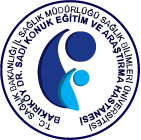ABSTRACT
Objective:
In this study, we evaluated the clinical characteristics of children who had admitted to the pediatric emergency unit due to drug- induced acute dystonia, particularly following risperidone treatment.
Material and Methods:
The hospital records of eleven patients (range 3- 16 years age) who had been diagnosed as acute dystonic reaction in our emergency unit, between January and December 2013, were retrospectively reviewed.
Results:
Six of the patients had used risperidone. One of these was accidental ingestion of an unknown amount. The others had taken risperidone <6 mg/day orally for conduct disorder or attention deficiency hyperactivity disorder (ADHD). Two children had taken metoclopromide orally at therapeutic dosages. One of these was as an attempt for suicide; the other was for acute gastroenteritis. One patient had taken a 4 mg chlorpheniramine maleate tablet for common cold, another had used haloperidol gutt (0.2 mg/day) for Sydenham chorea, and there was one case of unknown weed ingestion. The patient who had a history of unknown weed ingestion was referred to our clinic with the initial diagnosis of convulsion and encephalitis. Convulsion was the initial diagnosis in three of the cases of risperidone use also. All the patients were clinically diagnosed as acute dystonic reaction with the history of drug usage and a good response to treatment. Biperidene lactate was administered in all cases. All the signs and symptoms of the patients had disappeared within 30-45 minutes.
Conclusion:
Acute dystonic reaction is a rare clinical condition in children, which can easily be mistaken for other conditions. Acute dystonic reaction should be considered in patients who develop movement disorders and whose history includes the intake of a variety of medicines.



